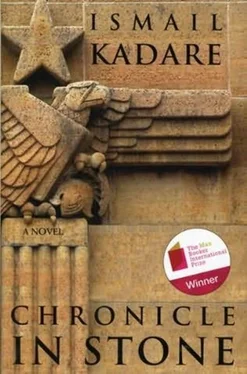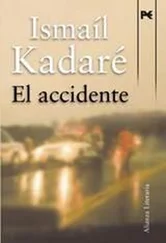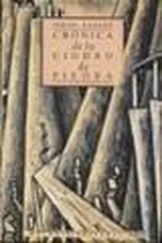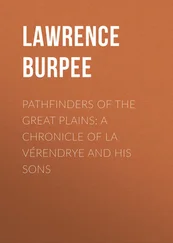Ismaíl Kadaré - Chronicle in Stone
Здесь есть возможность читать онлайн «Ismaíl Kadaré - Chronicle in Stone» весь текст электронной книги совершенно бесплатно (целиком полную версию без сокращений). В некоторых случаях можно слушать аудио, скачать через торрент в формате fb2 и присутствует краткое содержание. Жанр: Современная проза, на английском языке. Описание произведения, (предисловие) а так же отзывы посетителей доступны на портале библиотеки ЛибКат.
- Название:Chronicle in Stone
- Автор:
- Жанр:
- Год:неизвестен
- ISBN:нет данных
- Рейтинг книги:4 / 5. Голосов: 1
-
Избранное:Добавить в избранное
- Отзывы:
-
Ваша оценка:
- 80
- 1
- 2
- 3
- 4
- 5
Chronicle in Stone: краткое содержание, описание и аннотация
Предлагаем к чтению аннотацию, описание, краткое содержание или предисловие (зависит от того, что написал сам автор книги «Chronicle in Stone»). Если вы не нашли необходимую информацию о книге — напишите в комментариях, мы постараемся отыскать её.
Chronicle in Stone — читать онлайн бесплатно полную книгу (весь текст) целиком
Ниже представлен текст книги, разбитый по страницам. Система сохранения места последней прочитанной страницы, позволяет с удобством читать онлайн бесплатно книгу «Chronicle in Stone», без необходимости каждый раз заново искать на чём Вы остановились. Поставьте закладку, и сможете в любой момент перейти на страницу, на которой закончили чтение.
Интервал:
Закладка:
The clock struck seven when I came by
I stood at your window and heaved a sigh.
And I heard what your darling voice said:
“If only I didn’t have such a pain in my head.”
It seemed that a woman named Miriam complained of recurring headaches at seven every evening. Not much to it, but I liked the song a lot. No one would have dared sing such a song in our neighbourhood. If anyone had, a dozen windows would be thrown open and women young and old would claw their cheeks in shame and rain curses and probably a bucket of water down on the impertinent singer. But here, in this wide deserted space, you could shout to your heart’s content and never fill it with the noise. It was no accident that the stranger broke into song as soon as he turned into this street. He must have been singing it in his head all day long, in the market, the coffee house, and the centre of town, eagerly waiting to get to this lonely place to let his lungs give full vent to it.
The evenings especially were stunningly beautiful in this neighbourhood, with a charm all their own. Whenever I heard people say “Good evening,” I thought of Grandfather’s courtyard, where the gypsies who lived in a separate shack would play their violins while Grandfather stretched out on a chaise longue and puffed on his big black pipe. The gypsies had not been able to pay their rent for years, and they seemed to consider these summer evening concerts a way of working off some of the debt.
“Babazoti,” I would whisper, “roll me one too,” and without a word he’d roll a thin cigarette, light it and hand it to me. I’d sit beside him and suck on the burning tobacco in delight, ignoring the threatening gestures my aunts and uncles directed at me from the shadows.
I thought there was no greater happiness in the world than to sit smoking after a good meal, listening like Grandpa, with half-closed eyes, to the gypsies playing their violins.
Ah! I thought, when I grow up I’ll buy myself a big black pipe that smokes like a chimney, and I’ll grow a beard like Grandpa’s and I’ll lie on the divan and read great big books all day long.
“Babazoti,” I said in a drawling, sleepy voice, “will you teach me Turkish?”
“I will,” he answered, “when you’re a little older.” His voice was deep and soothing, and as I leaned against the chaise longue, I dreamed of the magic of tobacco and tried to figure out how much I would smoke and how many books I would have to read in Turkish before my time to die would come.
The thick books lay in the trunk, piled one on top of the other, an endless swarm of Arabic letters waiting to carry me off and reveal secrets and mysteries, for only Arabic letters knew the path to the mysteries, just as ants know the holes and fissures underground.
“Babazoti,” I asked, “can you read ants?” He chuckled softly and patted my tousled hair.
“No, boy, you can’t read ants.”
“But why not? When they’re all piled up together, they look just like Turkish letters.”
“It only seems that way, but it’s not really true.”
“But I’ve seen them,” I insisted one last time.
As I drew on my cigarette, I wondered what ants were for if you couldn’t read them like books.
All these things were running pell-mell through my mind as I walked past Avdo Babaramo’s house. He was an old artilleryman whose house was the only one up near the citadel. Then I headed back down through the underbrush, along the narrow path that seemed to have moved yet again. Bits of memory, fragments of sentences or words, splinters of trivial events swarmed about, shoving and catching one another by the ear or nose with a brusqueness sharpened by the speed of my steps.
I came to Suzana’s house. Once she heard I had come, she would run over and flutter around between the edge of the cliff and the gypsies’ shack, where we’d played at skipping on my second visit. Then she would stop in the middle of the waste ground near a tree we called badshade and watch what was going on from afar. Then, for sure, she would creep close to the house, if she weren’t feeling too fearful of Grandfather’s Turkish books. Her flutterings had something of the butterfly but something of a stork as well. She was taller than me, thin, and had long hair that she combed in a different style each day. Everyone said she was pretty. There were no other little girls or boys in Grandfather’s neighbourhood, so Suzana always waited impatiently for me to come. She said being around grown-ups bored her. Sitting at home embroidering bored her, going to the wash-house bored her, eating meals bored her. She was bored morning, noon and night. In short, she was really bored. She liked the word a lot and she spoke it with the greatest care, as if afraid to bruise it accidentally with tooth or tongue.
I would tell Suzana all kinds of things about life in our neighbourhood. She listened to everything attentively, with her eyebrows arched. Last time, when I told her about Çeço Kaili’s daughter’s beard, she opened her eyes wide, bit her lip two or three times, and was about to say something, but she held back, hesitated again, and then leaned forward, her face pale, her mouth near my ear, and asked: “Do you know any rude words?”
“Leave me alone, you idiot,” I said.
“You’re the one who’s an idiot,” she said, almost screaming, and ran off. As she ran she turned once and yelled from far off: “Idi-o-o-t!”
That evening she came back into the yard and, putting her long thin arm around my shoulder, she whispered softly, “I’m sorry I called you an idiot. I wanted to tell you a secret , but I forgot that you’re a boy.”
“I don’t want your secrets,” I said. “I’ve got plenty of my own at home.”
She started to laugh, but then ran off, happy that we were more or less friends again.
This time I was coming to Grandfather’s bursting with scary news. I felt like a sort of hero coming home from a magic kingdom. I pictured the astonishment I would arouse with what I had to tell. But little did I know that a disturbing surprise was waiting for me in that old house: Margarita.
The moment I stepped through the courtyard gate and looked up I saw her in one of the upper-storey windows. I had never seen such a beautiful woman’s face in a house I could only imagine as a repository of aunts, uncles, Arabic letters and food.
She was sitting near the flowerpots, utterly, miraculously alien; as strange and unexpected as a rose that suddenly blooms one morning on a thorny stem.
“Who’s that?” I asked Grandma, a bit taken aback.
“Our new tenant,” she said. “We rented her the corner room a week ago.”
Margarita smiled through the flowerpots and asked, “Is this your grandson?”
“Yes,” Grandma answered.
I felt my ears turn red and ran out through the courtyard gate. As I stood at the gate, I heard something, a flutter of wings. Suzana, I thought.
“So, you’ve come back,” she said.
I had suddenly lost the urge to tell stories about the neighbourhood. “What can I tell you? There’s nothing to tell,” I said.
“Nothing?” she asked, with disappointment.
“Well, there are some stories about magic.”
“Magic? How come? Tell me.”
“There are different kinds.”
“You don’t want to talk about it?”
I stayed silent.
“Why don’t you want to tell me about it? Go on! Or else tell me about the Italians.”
I still didn’t say anything.
“You’re really stupid,” she said. “ Extra-ordi-narily .”
“Really, extra-ordi-narily ?”
I took the round lens from my pocket and stuck it to one eye, holding it in place between my cheek and brow. To hold the lens that way I had to distort my whole face and keep my neck frozen stiff. Suzana hated seeing me like that.
Читать дальшеИнтервал:
Закладка:
Похожие книги на «Chronicle in Stone»
Представляем Вашему вниманию похожие книги на «Chronicle in Stone» списком для выбора. Мы отобрали схожую по названию и смыслу литературу в надежде предоставить читателям больше вариантов отыскать новые, интересные, ещё непрочитанные произведения.
Обсуждение, отзывы о книге «Chronicle in Stone» и просто собственные мнения читателей. Оставьте ваши комментарии, напишите, что Вы думаете о произведении, его смысле или главных героях. Укажите что конкретно понравилось, а что нет, и почему Вы так считаете.












